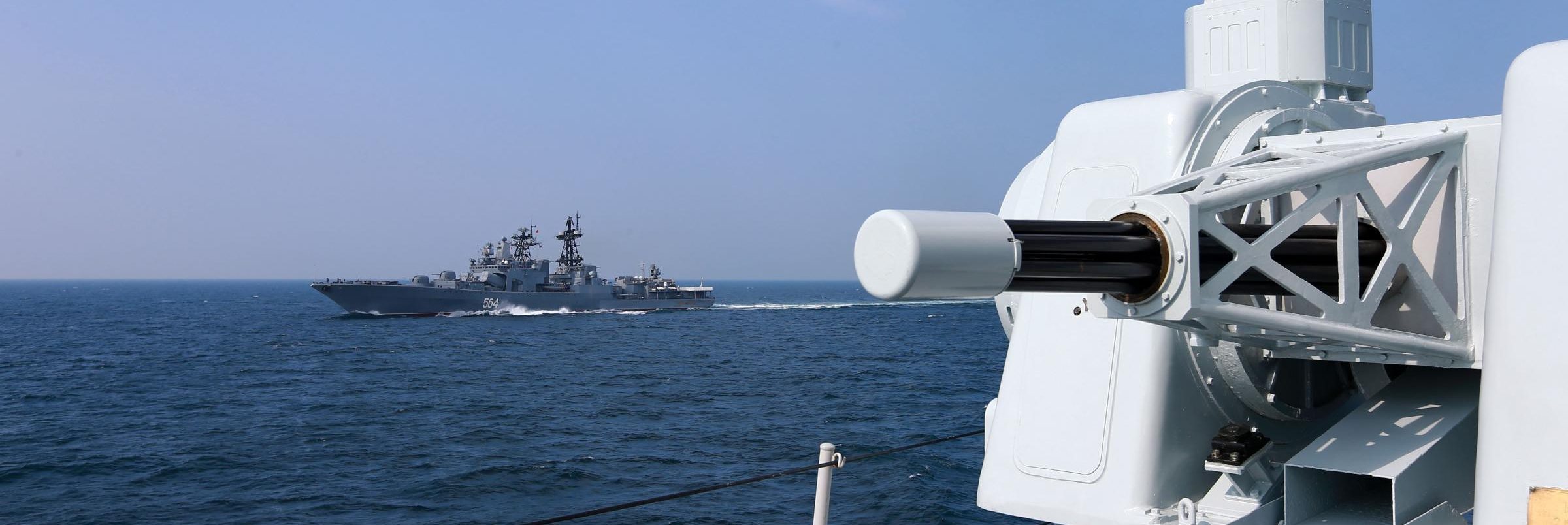On Monday 4 October, the British aircraft carrier’s Carrier Strike Group (CSG) mixed Her Majesty Queen Elizabeth Entered the water for the second time South China Sea Despite threats China During his first operational sea voyage that took him to the Far East.
China had earlier warned the UK not to do “improper acts” on the occasion of The first step of CSG in those disputed waters, which occurred earlier this year. Pro-government media Global Times, who is seen as a spokesman for the ruling Chinese Communist Party, said that “the People’s Liberation Army Navy is in a high state of combat readiness, and China has closely monitored the progress of the carrier. Strike Group, which is currently sailing in the South China Sea on its way to Japan. London is accused of “still living in the days of colonialism”.
As we know, China claims possession of the entire surface of that sea which lies mostly between Vietnam, the Philippines, Malaysia and Indonesia under an old and arbitrary dividing line known as the “Nine Lanes Line” (Nine Dash Lines).
Beijing is also moving steadily and slowly The militarization of the islands (Some of them are artificial) for the archipelago in those waters and at the same time what is real begins nationalization process: At the beginning of September, it was unilaterally established that different classes of ships would have to communicate their data to the Chinese Coast Guard (MSA – Maritime Safety Administration) before entering the South China Sea. The new ruling requires all operators, commercial or military, of certain types of ships such as submarines, nuclear-powered ships, and ships carrying radioactive materials, oil, chemicals, liquefied gas (LNG), or hazardous materials, before entering that offshore section. Inform MSA in advance of the location and destination (even if not directed towards a Chinese port, but only in transit), the nature of the shipment, and above all must send, at least every two hours, updates about its location or maintenance of active Ais, the marine “transponder” , or with appropriate contacts for this purpose.
The United States of America and their allies — in this case Australia, Japan and the United Kingdom — conduct maritime freedom-of-navigation operations (called phonops) to restore the international law contained in the Convention on the Law of the Sea (Unclos). Already on September 8, the Csg of the USS Carl Vinson (CVN-70) aircraft carrier, for the first time this year, entered that sea, while On the twenty-fifth, it was the turn of the US aircraft carrier Ronald Reagan (CVN-76) to do the same.
The two naval groups joined the British group, also formed by Dutch and American units, to form one A huge naval task force: It included 17 warships from six countries that carried out maneuvers during the past weekend in Philippine sea. The three aircraft carriers were accompanied by a helicopter carrier unit of the Japan Maritime Self-Defense Forces (Hyoga-class Ddh-182 “Ise”) along with other warships from New Zealand, the Netherlands and Canada.
The exercises, which included air defense, anti-submarine warfare, tactical maneuvers and communications exercises, continued until Sunday when the three groups separated and the British group resumed the southern route to the South China Sea, after completing a course of visits (and joint exercises) in Japan.
US Navy ships participating in the weekend’s exercise included the destroyers Uss Shiloh, Uss Chafee, Uss The Sullivans (the latter will join the newly formed Task Group Greyhound in the Atlantic) and the cruiser Uss Lake Champlain.
The exercises ended when the Chinese army, in another sector of the Western Pacific, sent 16 warplanes over the waters of the South Pacific Taiwan, less than 400 nautical miles from Okinawa. This was just the latest provocation from Beijing: China sent 38 planes to the same area on Friday and 39 on Saturday, the maximum in a single day since Taiwan began issuing flight reports in September 2020.
London’s new strategy
The British “shift” towards the Indo-Pacific is based on several issues of concern to London, such as economy (the region’s economies are growing at a remarkable pace) and security (to maintain freedom of navigation unlike the beams of China). In short, the UK believes that China’s growing power and international persistence are probably the most important geopolitical factors in today’s world, and therefore believes it needs to return to the global stage.
In the 100-page document entitledGlobal Britain in a Competitive Age – The Integrated Review of Security, Defense, Development and Foreign PolicyPublished by London, it states that the Indo-Pacific is central to the UK’s economy, security and global ambition, and in parallel it is explicitly noted that Beijing’s policies today “have an increasing impact on many aspects of our lives as they become more powerful in the world” So, for London, We need to improve “our ability to respond to the systemic challenge that China poses to our security, prosperity, and values.”
So the US (re)created its own credit line Scudero In the battle they are fighting to contain the expansionist ambitions of the Chinese giant – which is currently suffering from an unprecedented energy crisis – even if the British position, understood as global Britain in the general sense, we are sure it has not been fully assimilated into a Washington that fears it will find itself With an ally competing with his interests in the Western Pacific able to attract the attention of the countries of the region, which is also why the recent signing of the Tripartite Agreement was reached. OkosThis is how the White House mocked its allies in a formal but highly unbalanced tripartite agreement on the American side.

Communicator. Reader. Hipster-friendly introvert. General zombie specialist. Tv trailblazer

